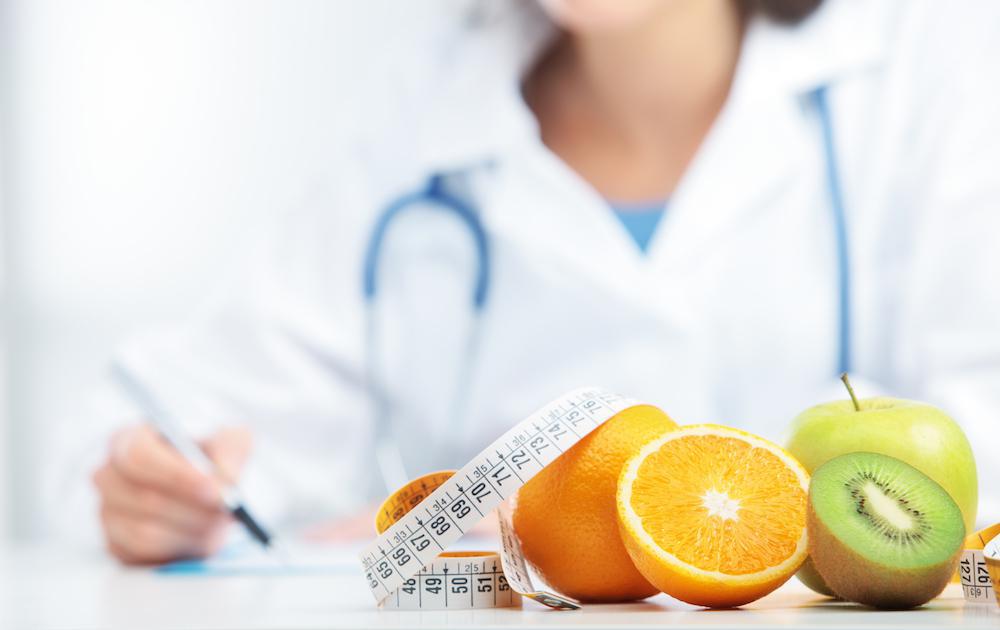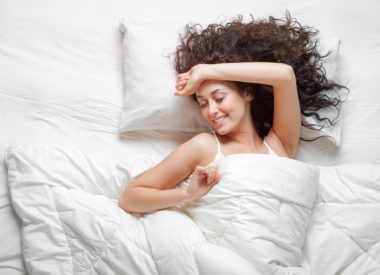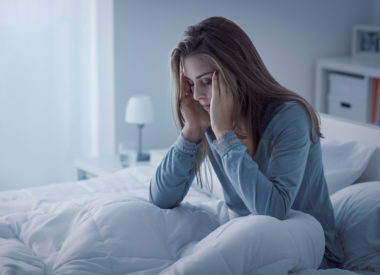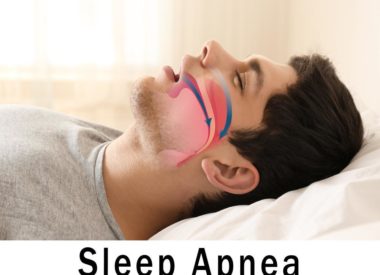Diet Resolutions for Better Sleep in 2017
2017 is just a couple days away. By now, you’ve probably started thinking about your New Years Resolutions. If sleeping better is one of your goals for the new year, getting on top of your sleep hygiene and exercise habits are two solid starts. But how about diet resolutions for better sleep?
Its true: what you eat, and when you eat it, does affect your sleep. What are the best diet and eating habits for improving sleep as well as the foods you should avoid?
Kinds of Foods That Thwart Sleep
If you want to sleep better, first you should take a look at the foods you need to cut back on eating or drinking especially within a few hours of your desired bedtime. Some of these sleep-stealing foods may contain stimulants that keep you awake when you need to get sleepy. Others may disrupt your sleep by affecting your insulin levels, digestion, or your bladder.
Foods on the bad list meaning, its best to restrict them to lunch or early afternoon snacks include:
- Acidic foods. Foods high in acid can cause sleep-stealing indigestion and heartburn. Examples: grapefruit, oranges, strawberries. Some citrus juices may also upset your stomach.
- Though beer, wine, or liquor may make you sleepy, alcohol is likely to wake you later in the evening. Studies show it disrupts REM sleep. Alcohol is also dehydrating, which can lead to sleep-disrupting thirst and headaches.
- Caffeine . Being a stimulant, caffeine from coffee, black or green tea, energy drinks, carbonated softdrinks, and dark chocolate should be off limits close to bedtime. Because coffee has a long half-life (six hours or more, depending on health variables), to get it completely out of your system, you’d need to cut off your intake twelve hours before sleep. (So if you go to bed at midnight, stop drinking or eating caffeine by noon.) If you’re sensitive but you have to have it, try to stop all sources of caffeine six hours before bed.
- Diuretics. Certain foods and drinks with diuretic properties and a high water content can cause you to wake up multiple times in the night to urinate. For example: coffee, certain kinds of tea, watermelon, cucumbers, celery.
- Fatty foods. Fried foods and those high in fat are slower to digest and can cause acid reflex or indigestion. Examples: fried chicken, marbled steak, bacon.
- Spicy foods. Spicy-hot foods can lead to heartburn. If you can, restrict cayenne, jalapeos, Sriracha, and other spicy seasonings to lunchtime or afternoon snacks.
- Gassy foods. Anything high in gas can take longer to digest. High-fiber, gassy foods like beans, cruciferous vegetables (broccoli, cauliflower, brussels sprouts), and corn may keep you up with bloated belly and stomach pains.
- High-sugar foods. The temporary insulin spike from sweets can make you sleepy, but eating too much sugar before bed can create unstable insulin levels in the night. These fluctuations may wake you.
- Tyramine-rich foods. This amino acid signals your brain to release norepinephrine, a stimulant that delays sleep and actually makes your brain work faster. If you find yourself lying in bed alert and with racing thoughts, it could be because you had tomatoes, tomato sauce, soy sauce, red wine, aged cheeses (like parmesan), or eggplant with dinner. Big Italian dinners and pizza are rich in carbs, but the drowsiness they cause might be canceled out by the presence of tyramine in the sauce and toppings.
Foods That Help Sleep
To support better sleep, try to eat a varied vitamin and mineral-rich diet with a focus on picking small, nighttime snacks that contain the following natural amino acids, nutrients, or properties:
Tryptophan . This amino acid helps the body manufacture melatonin (the sleep hormone manufactured by the pineal gland in the brain) and serotonin (a neurotransmitter that maintains mood balance). Consuming foods high in tryptophan helps the body to make more melatonin, which has the effect of cueing you to crave sleep by making you drowsy.
- Foods that contain tryptophan: famously, turkey; but walnuts (which also contain melatonin), eggs, chick
peas/hummus, elk, shrimp, chicken, and lobster also contain equally high levels.
Magnesium . This mineral helps you to stay asleep; as a bonus, its also known to reduce headache pain.
- Foods with magnesium: almonds (also high in calcium), pumpkin seeds, leafy greens (spinach, kale, swiss chard, collard greens), mackerel, soy beans, lentils, brown rice, whole grains, and avocados.
Calcium. Found frequently in dairy products, calcium works with tryptophan to create more melatonin; together with magnesium, it helps to control muscle contractions, too (especially helpful for those who experience leg cramps or restless leg syndrome).
- Foods high in calcium: cheese, milk, yogurt, sesame seeds, tahini, kale, spinach, broccoli, almonds, and sardines.
Vitamin B6. This vitamin is necessary for the body to manufacture serotonin and melatonin.
- Foods that contain B6: halibut, salmon, tuna, beef liver, turkey, chicken, pork, pistachios, garlic (eaten raw), bran, sunflower seeds, and dried fruit (prunes, apricots, raisins).
Lactucarium. This naturally occurring mild sedative and analgesic was considered a gentle alternative to opium by the ancient Egyptians. Today, its a common ingredient in cough syrups and lozenges.
- Foods that contain lactucarium: lettuce (wild or domestic).
Herbal Teas. Chamomile tea so calming because it acts like a mild sedative. Research indicates it may boost your levels of a nerve and muscle-relaxing chemical called glycine. Passionfruit tea, naturally high in Harman alkaloids that relax the nervous system, is also beneficial. Researchers have found that drinking a cup of passionfruit tea an hour before bed promotes sounder sleep.
High Glycemic Index (GI) foods and carbohydrates. You’re probably familiar with the sugar slump associated with eating carbs. If you follow up lunch with a slice of cake, you may find yourself in a losing battle against an unwanted afternoon nap. To avoid pre-diabetes and diabetes, most of us should limit our daily intake of high GI foods and carbohydrates. But the strategic use of such snacks before bed may actually help to promote sleepiness. Carbohydrates spike your blood sugar and insulin, which triggers a release of tryptophan in the brain; they also make tryptophan more available for use. The key is to pick carbs that release insulin more steadily than sugary treats. (Sorry, ice cream, brownies, and candy bars are not advised!)
- High-GI snacks: pretzels, crackers, puffed rice or corn flake cereals, white rice, jasmine rice, rice cakes,
white bread, oatmeal, grits, hot wheat cereal, and honey.
Given the sleep-promoting qualities of whole grain bread, lettuce, kale, avocado, hummus, cheese, and turkey, one of the simplest to prepare pre-bed snacks you could make is a finger sandwich loaded up with all of these ingredients.
Equally low-maintenance but just as effective is a bowl of cold or hot cereal sweetened with honey. This allows you to pair a carbohydrate with a calcium-enriched milk or milk substitute (like rice, soy, or almond milk). For example, a small serving of oatmeal with milk, honey, walnuts and almonds is rich in calcium, magnesium, and tryptophan. For an added B6 bonus, add in raisins, sunflower seeds, and dried apricots.
A few crackers with peanut butter or almond butter is another good way to pair protein, minerals, and carbs. Cheese and crackers or crackers and sardines (with a glass of milk or glass of chamomile tea) also do the trick.
Timing of Meals
Though opinions on the optimal times to eat vary, many nutrition experts believe you should eat your largest, richest meal earlier in the day; a big, balanced lunch will keep your body warm and fueled throughout the afternoon, when you most need the calories. Mid-day would also be the time to indulge in spicy foods that would otherwise interfere with a good nights sleep.
Eating your largest meal at dinner means you’re giving your body its biggest dose of fat and calories when you’re least active. Digesting that meal can take six to eight hours; doing it lying down can even give you heartburn, gas, acid reflex, or a stomachache, any of which is likely to wake you up in the middle of the night.
To optimize sleep, eat like a European: have your biggest, most indulgent meal at lunch, then enjoy a light dinner (about 500 calories) that includes a lean protein, preferably one containing a sleep-promoting ingredient like magnesium (found in many fish) or tryptophan. Avoid spices and very gassy beans or vegetables after 5:00 PM, as these can cause digestive problems that may wake you up in the night.
To increase drowsiness and prevent midnight snack awakenings, have another, smaller snack of about 200 calories thirty minutes before you go to bed.
For People with Dietary Limitations
Remember, no food is a magic cure-all for insomnia or fragmented sleep. If you have special dietary limitations due to food allergies, diabetes, hypoglycemia, or other issues, stay away from any foods that may trigger symptoms. The best way to create a safe diet plan that takes your needs into consideration is to consult your doctor.
Summary
Now that you know what foods and drinks to avoid and what to eat, you’re ready to make an action plan for your 2017 Sleep Resolutions. Remember:
- Avoid the foods that disrupt your sleep, especially after 5:00 PM.
- Choose foods that promote sleep.
- Consume your biggest meal mid-day.
- Eat a small, sleep-friendly snack thirty minutes before you go to bed.
Happy New Year!



